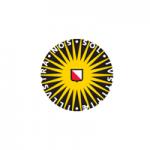项目介绍
The University of Bern is looking for a PhD student / Doctoral Candidate (DC). This DC position is part of the MIRACLE consortium, a Marie-Sklodowska Curie Actions Doctoral Network that started on the 1st of February 2024.
The primary supervisor for the project is Prof. María Rodríguez Martínez, an Associate Professor in the Department of Biomedical Informatics & Data Science at the Yale School of Medicine (https://medicine.yale.edu/biomedical-informatics-data-science/), and an adjunct researcher with the Institute of Tissue Medicine and Pathology (ITMP), University of Bern. The student will be based at the University of Bern, Switzerland, and will join the group of the secondary supervisor, Prof. Inti Zlobec, a Professor of Digital Pathology at the ITMP. Collaboration between both groups is expected. To ensure this, a portion of the PhD program will be spent at Yale University.
Prof. María Rodríguez Martínez has a background in physics. She transitioned to computational biology during her postdoctoral studies at the Weizmann Institute of Science (Israel) and Columbia University (USA). Between 2013 and 2023, she led the Computational Systems Biology team at IBM Research Europe (Switzerland), dedicated to the development of novel computational strategies for personalized cancer treatments. A major part of this work was developed under the umbrella of two major EU-funded consortia focused on prostate and pediatric cancers, which she successfully initiated and coordinated. Her current research integrates mechanistic and artificial intelligence models, with a particular emphasis on the development of interpretable deep learning approaches for computational biology. Recently, her research has concentrated on cancer immunology, leading to the development of predictive models for T cell receptor binding and the exploration of B cell evolution.
Prof. Inti Zlobec is Professor of Digital Pathology at the Institute of Tissue Medicine and Pathology, University of Bern in Switzerland, where she leads to Odyssey Digital Pathology Research Group (www.digitalpathologybern.com), an interdisciplinary computational pathology research hub, bringing computer scientists, bioinformaticians, biologists and medical doctors together to work on common projects. The aims of the research group are on the one hand, to build tools for diagnostic clinical use and on the other to gain novel biological insights into cancers by using the latest spatial (transcriptomic and protein) tissue visualisation techniques and computational methods. Inti Zlobec is Chair of the European Society of Pathology Working Group for Digital & Computational Pathology, Founder and President of the Swiss Digital Pathology Consortium (SDiPath), Executive Team member of the Center for Artificial Intelligence in Medicine (CAIM) of the University of Bern and Board member for the Bern Center for Precision Medicine (BCPM). The PhD students related to the MIRACLE programme will be embedded within the Odyssey Research Group, with additional interactions to scientists specializing in the field of cardiovascular inflammation.
The PhD candidate will work on the development of multi-scale models of the immune system with a focus on investigating cardiometabolic disease (CMD).
We are seeking a highly motivated PhD candidate to embark on an exciting project focusing on the development of a comprehensive multi-scale model of the immune system, with a particular emphasis on inflammation and its role in cardiometabolic diseases (CMD). The project aims to identify new therapeutic strategies to mitigate inflammation and disease progression in CMD. The PhD candidate will develop hybrid mathematical-AI models that integrate mechanistic insights with AI methodologies, addressing challenges related to data scarcity, lack of robustness and generalization of existing data-driven models. The model will be trained on multi-omics datasets and will encapsulate known macrophage and T-cell biology.TasksKey Responsibilities:
- Develop a multi-scale model of the immune system to investigate inflammation by extending existing models (focused on T and B cell biology) to include macrophages.
- Train this model using both publicly available single-cell data in CMD diseases.
- Using the developed model, characterize the dynamical interplay and cellular communication between T cells and macrophages in atherosclerosis.
- Integrate spatial molecular data generated by MIRACLE partners to enable accurate cellular simulations of CMDs.
- Investigate and address uncertainties in AI models, adapting current reliability benchmarks for the analysis of single-cell datasets.
Expected Outcomes:
- Development of an accurate model for the mechanistic investigation of chronic inflammation and CMD.
- Innovative models to explore therapeutic interventions in CMD.
- Development of new interpretable deep learning methods for multi-omics data integration.
RequirementsREQUIRED EDUCATION LEVEL
A degree (MSc, or equivalent) in Computational Biology, Bioinformatics, Systems Biology, or a STEM-related field, such as Mathematics, Physics, Computer science, etc. Additionally, a good understanding of Health or Life Sciences, for example, Biology, Microbiology, Molecular Biology, Immunology, Biomedical Sciences, or Biochemistry, will be considered an asset. Candidates in the final stages of obtaining their degree are eligible to apply.
Furthermore, the applicant should be able to perform team-oriented as well as independent work. Additional requirements:
REQUIRED LANGUAGES
ENGLISH: Excellent, both written and spoken.
SKILLS/QUALIFICATIONS
Essential skills:
- Proficiency in machine learning techniques.
- Strong programming skills, preferably in Python.
- Solid foundation in mathematical modelling, probability and statistics.
- Ability to work collaboratively in an interdisciplinary team.
- Good communication skills in English (both written and spoken).
Good to have:
- Experience in computational biology.
- Familiarity with multi-omics data analysis.
- Knowledge of interpretable deep learning methods.
- Good understanding of immunology and/or microbiology.
We offerThe Faculty of Medicine at the University of Bern, one of Switzerland’s largest, educates over 2200 students in human medicine and dentistry. Renowned for its unique curriculum, the faculty emphasizes practical relevance, diverse subjects, and innovation. A significant focus area is cardiovascular disease, the leading global cause of death. Through collaborative research with the University of Bern and Inselspital, Bern University Hospital, the faculty delves into cardiovascular physiology and pathophysiology, spanning fundamental science to clinical studies. This commitment to excellence in research and interdisciplinary approach positions the faculty as a leader in both education and cardiovascular research. More information can be found at the following links:
Remuneration:
The per annum MSCA PhD student living and mobility allowance (plus family allowance if applicable, family status is assessed at recruitment) is in line with EU-MSCA requirements. This amount will be subject to tax and employee’s National insurance deductions and will be paid in EURO.
The MIRACLE network, funded by the European Commission (2024-2028), is made up to train a new generation of researchers working on the latest advances in single-cell biology, multi-omics analysis, and the newest insights in macrophage biology in the context of cardiometabolic disease. These advances revealed heterogeneous and dynamic accumulation of (immune) cell populations in tissues that are associated with disease initiation, development, and particularly clinical outcome, a notion that has immense implications on our view of chronic inflammatory diseases and their treatment. Unique know-how is ready to be transferred to highly talented research fellows. In MIRACLE, twelve doctoral candidates will receive tailored training that enables them to study local and environmental factors that drive cardiometabolic inflammation as well as develop strategies to suppress them, via the integrated use of cutting-edge single-cell, spatial mapping, computational and disease modelling approaches. Moreover, they will be able to develop and polish skills in translational science by working with biotech- and pharma experts and clinicians pledging clinically actionable outcomes. It is aimed to organize secondments of several months for each DC to both academic and non-academic institutions in the MIRACLE network that will significantly add value to the training. The combination of high-level science with top-notch infrastructures, resources, and solid data places MIRACLE at the forefront to move single-cell biology towards cardiometabolic (precision) medicine and foster the scientists of tomorrow. The MIRACLE network consists of the following institutions and companies:
- Amsterdam UMC, location Academic Medical Center (coordinator)
- Maastricht University, NL
- University of Lille, FR
- University of Eastern Finland
- University of Bonn
- BiomimX
- Katholieke Universiteit Leuven
- University of Bern
- AstraZeneca
- University of California San Diego
- NanoString
- Science Matters
- European Macrophage Dendritic Cell Society
- European Atherosclerosis Society
MIRACLEApplications will be considered on a rolling basis until June 30, 2024. Interested candidates should submit a short letter of interest outlining their reasons for applying to our group, a curriculum vitae including the names of two references, a list of publications, and copies of academic qualification certificates as a single PDF file by email to: Cornelia Mileto.
For more information, visit our website.
联系方式
电话: +41316848111相关项目推荐
KD博士实时收录全球顶尖院校的博士项目,总有一个项目等着你!





